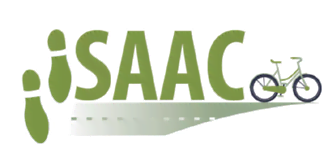New knowledge to boost walking and cycling revealed
One hundred professionals from across Europe gather in Brussels today on 9 May to discuss user needs in multimodal transport systems. The event is organised by the CEDR Programme Executive Board and Polis.
Download the conference programme here.
New tools will improve decision-making
At the conference, the ‘PedBikePlanner’ will be launched, a tool that has been developed within the ISAAC project and that provides planners with evidence-based information about the impact of transport interventions on modal shift and road safety. “Before ‘PedBikePlanner’, transport planners needed to search through vast amounts of fragmented information, which was very time-consuming and biased. This tool will save them lots of time and improve the decisions that are made”, says Tim de Ceunynck, researcher at VIAS institute.
A framework to evaluate the impact of new technologies and a toolkit of investment options for authorities were developed within the STTRIDE project. Conference delegates will receive training to use the ‘PedBikePlanner’ (www.pedbikeplanner.eu) and the STTRIDE tools (https://sttride.trl.co.uk/).
Walking and cycling must not be lumped together
Results of a new extensive user survey, also undertaken within the ISAAC project, are presented for the first time. It has been found, for example, that people’s reasons not to walk more frequently for short trips differ strongly from not cycling more often. For cycling, road safety is the main barrier, while for walking, travel time is perceived too long. While lowering any barrier will have benefits for both, the study makes it clear that a powerful strategy aimed at boosting cycling will be different from a strategy for walking.
The representative survey was conducted in nine European cities, i.e. Ghent, Liège, Tilburg, Groningen, Trondheim, Bergen, Düsseldorf, Dortmund and Berlin.
What is the role of e-scooters and other new mobility services?
With the rise of new mobility services such as bike- and e-scooter sharing, conference delegates will also discuss how micromobility services impact the transport system, and which regulation is best suited to help achieve policy goals.
Promotion is not enough
These events are held during the UN Global Road Safety Week (6-12 May) to demonstrate that modal shift towards more walking and cycling plays a major role in improving road safety. Fewer vehicle kilometres reduce the likelihood of trauma from road crashes, especially for unprotected road users. “Promoting walking and cycling is important but not enough. Authorities on local, regional and national level must also invest in making city streets safer”, says Karen Vancluysen, Secretary General at Polis.
About
The STTRIDE and ISAAC projects were funded through the CEDR Transnational Research Programme Call 2015 “User Needs in a Multimodal Context”. The programme was funded by the CEDR members from Germany, Netherlands, Finland, Ireland and Sweden. The final conference of the programme has been organised by Polis on behalf of the CEDR Programme Executive Board.
The conference will be webstreamed from 9 May, 9.30h via www.polisnetwork.eu/webstream
Hashtag of the conference on twitter: #CEDR_multimodal

